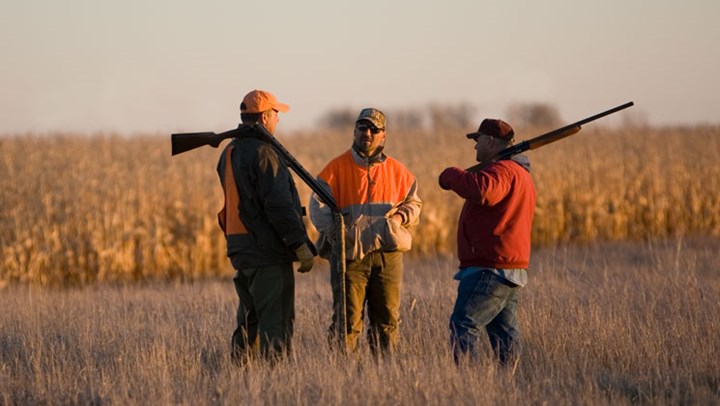
by Brian McCombie - Thursday, October 27, 2016

Despite attacks by anti-hunters, aided by those who would strip us of our Second Amendment rights, it is actually a fine time to be a hunter—and more people than ever are realizing it.
Examining Hunting's Growth Curve
Consider the state of Georgia. According to data gathered by that state’s Department of Natural Resources (DNR), the 400,000 hunting licenses sold here last year represented nearly a one-third increase in sales from 2009.
But that number doesn’t include hunters under the age of 16, hunters over 65 and landowners hunting on their own property—none of whom need to buy a hunting license. As reported by the Atlanta Journal-Constitution, “A DNR hunters’ survey last year indicated that about 250,000 people fall into that category. That means more than 600,000 Georgians hunted last year.”
And it's not only in Georgia. According to the most current data available, Alabama saw 253,000 hunters afield in 1996. By 2011 the number had surged to 492,000. Florida saw a net gain of 58,000 hunters over the same time period—all of which mirrors national trends. According to the U.S. Fish and Wildlife Service (USFWS), between 2006 and 2011 hunting participation among Americans increased 9 percent. The growth in states like Georgia suggests those numbers will continue to climb.
Improving Hunting Opportunities
Thanks to scientific wildlife management and conservation programs, and some help from the weather, American game animals, taken as a whole, are in pretty good shape. A primary example is the whitetail deer, America’s No. 1 big game species, which is providing increased hunting opportunities for the fall 2016 seasons.
According to a July 2016 article from the Associated Press, wildlife managers in Maine were looking to boost “the number of deer hunting permits by as much as 60 percent this year, up to more than 45,000. State deer biologist Kyle Ravana said most of the extra permits will be issued in southern Maine…” In the meantime, he explained, “Vermont is issuing almost 19,000 antlerless deer hunting permits this year, nearly twice as many as last year. New Hampshire issues deer permits for the southeastern part of the state and will increase them by a small amount. State officials have said they expect hunters to exceed last year’s deer harvest of 10,895."
In colder regions of the country such as the Northeast, milder winters certainly have played a part in rising deer populations, but nothing surpasses the benefits of science-based wild game management. State DNRs have kept tag numbers low in past years when populations were low to stagnate. For more good news, elk populations continue to grow in many western states, and black bear numbers are high as well. Alaska, for example, reports a black bear population of 100,000. In fact, black bears are doing so well across the Lower 48 that Florida considered reinstating a hunt in October 2016 to manage its numbers and address increasing conflicts with humans.
Exposing Anti's Lies at Every Turn
While Florida Fish and Wildlife Conservation Commission (FWC) research shows its bear numbers have grown from 300-500 in the 1970s to an estimated 4,350, talk of scheduling a 2016 bear season was fought by the Humane Society of the United States (HSUS) and other anti-hunting extremist groups. In June, the FWC voted 4-3 to table the discussion for now, though it may reconsider for 2017. Clearly, part of being an American hunter in the 21st century means remaining ever-vigilant regarding those who seek to end all hunting and, at the same time, put an end to hunter-funded scientific wildlife management programs.
Enjoying the Excitement of the Hunting Lifestyle
Getting back to some good news, let's revisit the Georgia scenario again as it is one of many states where hunter numbers have risen steadily since 2010. John Bowers, the Georgia DNR’s chief of game management, thinks a number of factors contributed to these gains, not the least of which is a new media focus on the outdoors.
“I call it the 'Duck Dynasty' effect,” Bowers told the Atlanta Journal-Constitution. “The cable show, showcasing a camo-clad family that embraces hunting, may have prompted some people to consider picking up a gun," he said. Then there’s ‘Swamp People,’ another show whose title precisely describes the show’s stars.” Such shows, Bowers thinks, may well have given hunting a boost because they depict hunting and the outdoor lifestyle as positive, family-oriented activities. Bowers added that the popularity of eating organic foods and relying on local foods are also a help.
“You’re not going to get any more natural and organic than going out and killing your own food,” he said. “[Hunters] have been doing that forever. We just didn’t call it ‘organic’.”
E-mail your comments/questions about this site to:
[email protected]
Proudly supported by The NRA Foundation and Friends of NRA fundraising.
